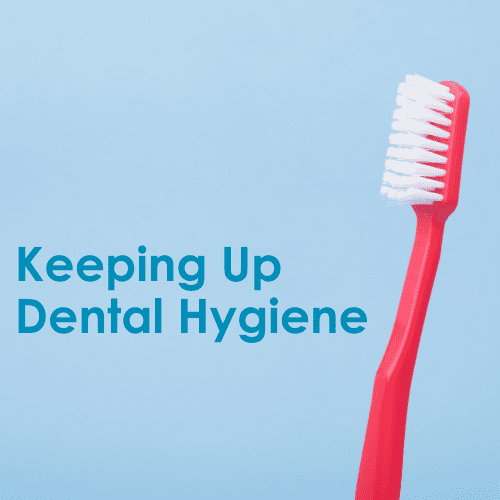Dental Hygiene Tips
Friday June 28, 2019

Most of us take our pearly whites for granted. We brush them morning and night. We floss. We get food stuck between our teeth and can get it out. We recognize when something hurts.
People with dementia can’t always do these things, so their caregivers assume the responsibility. It isn’t easy to get an adult who doesn’t want to brush his/her teeth to do it (especially if you’ve just had a similar battle over changing into or out of pajamas). But it is worth the effort.
When oral care diminishes, a domino effect of bad things can happen. First, cavities, broken teeth, and bad breath. Next, teeth pulled. Then, lost appetite and weight loss. An unhealthy mouth can also lead to infections and abscesses.
If you notice your loved one’s oral care isn’t what it used to be, here are some ways you can help:
Instruct step-by-step.
“John, lets brush your teeth.” “Put toothpaste on the toothbrush.” “Brush your top teeth.” “Spit into the sink.”
Model the action.
Brush your teeth along with your loved one – just slow down and slightly exaggerate how you normally do it.
Assist hand-under-hand.
Watch this short video from Teepa Snow. She demonstrates the proper form.
Brush your loved one’s teeth for them.
Brush at a 45-degree angle. Focus on the teeth, gums, and tongue.
Try both a regular and an electric toothbrush to see which one works better for your loved one. The electric brush may be helpful for some but too much stimulation for others.
Mouthwash can be a good option as well. If your loved one swallows mouthwash, look for one that’s alcohol free.
Regular dental check-ups are important – especially when your loved one’s personal dental hygiene is failing. Call ahead of the appointment to let your hygienist and dentist know about any problems.
If your dentist office isn’t familiar with your situation, let them know ahead of time (without your loved one present) that your loved one has dementia/Parkinson’s/etc. When you prepare the dentist, they can provide a better and more dignified experience for your loved one.




